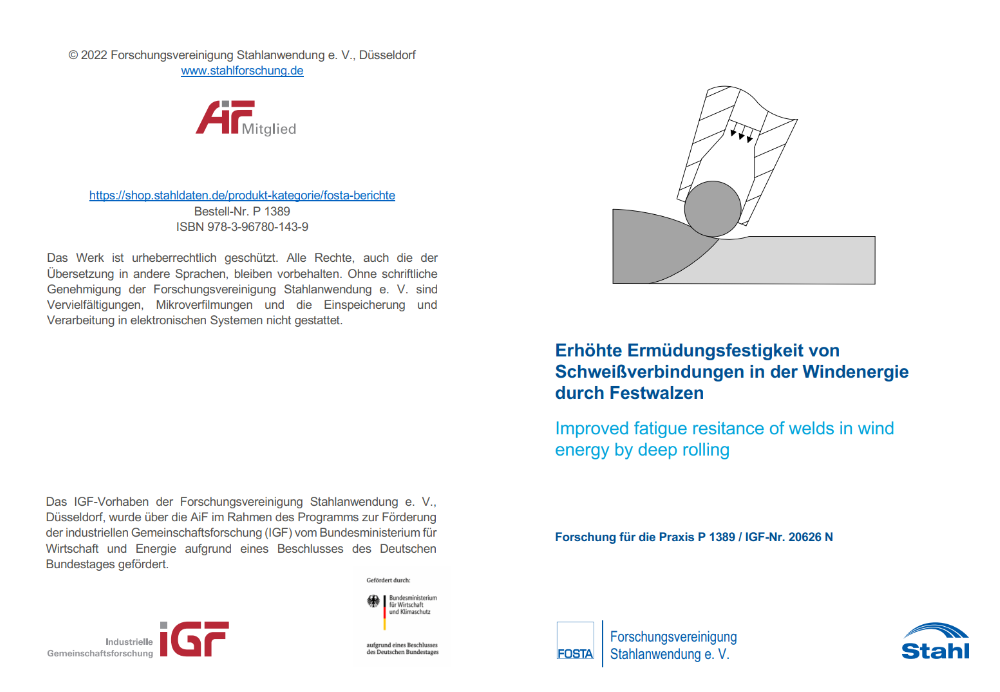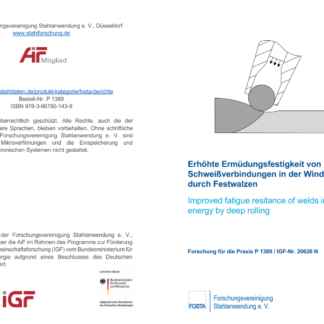Description
P 1389 – Improved fatigue resitance of welds in wind energy by deep rolling
In order to achieve energy policy goals, the expansion of renewable energies is indispensable. In Germany, this can only be achieved through the expansion of wind energy and is stipulated in the most recent version of the Renewable Energy Sources Act (EEG). Offshore wind turbines will make a decisive contribution to the expansion of renewable energies in the future. Technical innovations are therefore necessary in order to drive forward the expansion. In particular, an economical construction method for the welded steel structures (monopiles) is necessary.
In order to save material while maintaining at least the same fatigue strength, this project transferred the automated deep rolling process established in mechanical engineering to welded heavy plates. This is particularly suitable for integration into the automated production chain for the manufacture of monopiles. The project focused in particular on the geometry, surface and subsurface properties induced by the deep rolling process. In particular, the residual stress state, which has a decisive influence on the fatigue strength of steel components, was investigated in detail. Within the scope of the investigations, the influences of the deep rolling process on the residual stress state of welded specimens could be quantified. In addition, permissible stresses were determined that still guarantee a stability of the residual stress state.
The overall objective of the project was to quantify the increase in fatigue strength of welded steel plates through the deep rolling process. The increase in fatigue strength was proven and quantified in experimental investigations. The objective of the project was achieved.
All research reports in german language only!
Veröffentlichung:
August 2022
Autoren:
Prof. Dr.-Ing. P. Schaumann, Ch. Dänekas, M. Sc., apl. Prof. Dr. rer. nat. habil B. Breidenstein, St. Heikebrügge, M. Sc


